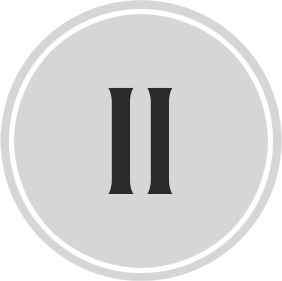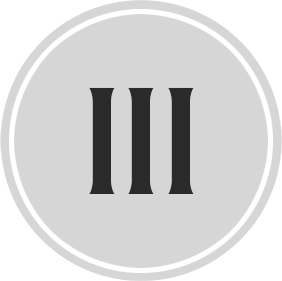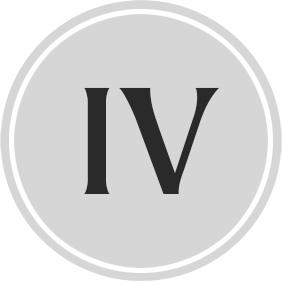Introduction to the Statement
At one time universities were bastions of human achievement. In recent decades, higher education has suffered a disintegrating revolution from within, of the kind observed by Kierkegaard which "leaves everything standing but cunningly empties it of significance." So the monuments of our culture have stood but as hollow shells concealing their decay, like piñatas waiting to be burst open by children.
Now the bursting has begun. Monuments topple, and all the artifacts of our culture are subjected to interrogation. Great books are destroyed, not yet by fire, but by hermeneutics—methods of deconstruction which mutilate their form and meaning until some confession of thoughtcrime can be extracted and crucified. "And thus to all tyrants," as the saying goes. Now, universities are chambers of everlasting inquisition. Students are no longer asked to “come forth, and bring with you a heart that watches and receives.” They are trained to become the interrogators themselves, who will "murder to dissect," or—subvert, deconstruct, revolt, whichever you fancy.
“Now, universities are chambers of everlasting inquisition."
The past is being exhumed, not to be renewed, but to be paraded about as an effigy in the perpetual riot that is higher education. And the terror of this danger should not be underestimated. As Burke observed, those who disregard their ancestors will also disregard their descendants. But of those who actively destroy their ancestors—what, by the same principle, shall their descendants suffer? With best of luck their descendants might only suffer the entire divesting of their inheritance, save what rubble and ash remain of the ruined monuments of our once great culture. But only naïveté could hope for such a favorable outcome, or else we forget Heine’s warning: “Where they burn books, so too will they in the end burn human beings."
Truth has been enslaved to propaganda. Lies are the deadliest pandemic of our time, which attack not merely human bodies, but humanity itself. Those among us who have a hint of care for humanity—and for our cultural heritage—we are resolved that these destructive and dehumanizing atrocities must not proceed without challenge.
Until there rises up among us the messiahs who might cast out these peddlers of propaganda from our temples of education, we can only follow two simple steps.
First, we can refuse the lie.
“Let us make our choice,” Solzhenitsyn writes, “whether to remain consciously a servant of falsehood, or to shrug off the lies and become honest [people] worthy of respect.”
Second, we can speak truth forthrightly, undeterred by the mob.
The cost of truth might seem too high. Already, friends and colleagues have suffered cancelation for the crime of speaking it—they have suffered the loss of their careers, if not the public molesting of their reputations. But we will not be isolated voices shouting into the crowd. The path of truth may be as rugged as it is narrow, but “you will not be the first to take this path,” Solzhenitsyn continues. “You will join others! It will be easier and shorter if we embark on it in great and friendly numbers.”
To this end, the STATEMENT ON EDUCATION AND IDEOLOGY presents the following affirmations and denials, which address five subjects most crucial to the state of higher education. We offer these for your consideration and approval.
EXALTATE VOCEM LIBERTATIS
- The Center for Student Discourse.
The Statement
Human Nature and Identity
WE AFFIRM that human identity is most truly conceptualized at the level of the individual. We affirm that each human individual is a very manifestation of the Logos, in which humanity possesses irrevocable dignity. All human individuals are ontological equals, irrespective of race, sex, gender, social status, religion, or any other marker of group division. Education therefore bears responsibility to the individual as such, with an aim to refine, magnify, and celebrate the best of human capability—among which are the capacity for reason, for creation, for imagination, and for love.
WE DENY that human identity can be adequately expressed by mere labels of human taxonomy—neither by race, sex, gender, religion, social status, nor any other narrow characteristic. To reduce the scope of human nature to soulless, anonymous labels, without regard for the individual person, strips away all that is unique or dignified about humanity. Any education modeled upon such degenerate visions of humanity will be necessarily degenerate in kind. These models rarely produce scholarship worthy of the name, and manufacture students who are unequipped, in either heart or mind, for the realities that await them beyond.
Racism
WE AFFIRM that racism is a dehumanizing evil, defined as the reduction of an individual to the supposed characteristics of his or her group identities. We affirm that this vision of humanity is condemnable, whether self-imposed or inflicted on others. We affirm that this is the very root of dehumanization, that it is a lie about human nature, and we acknowledge the legacies of destruction this lie has accrued. We therefore condemn any instance of this evil, whether it manifests in doctrines of racial superiority or in doctrines of collective guilt. We affirm that education can only remedy this error by revivifying a robust vision of human dignity as it exists in the individual.
WE DENY that racism ought to be newly redefined as an omnipresent sin which exists at invisible levels of society. We deny that racism can ever be an innate characteristic within any human individual or ethnicity. We deny that racism can be equated with social privilege, or social privilege with guilt, on the basis of the conceit that reality is a zero-sum struggle between warring groups to obtain these privileges. Any educational model or institution that presumes these fabrications to be realities we condemn as corrupt, having betrayed the truth of humanity for a perverted propaganda.
Diversity, Inclusivity, Equity
WE AFFIRM that humanity is splendidly varied, that the celebration and preservation of human culture, in all its richness, ought to be a primary aim of education. We affirm that true human diversity exists between individuals, who are persons and minds all their own, who are singularly unique and cannot be reduced to mere stereotypes of any group. We affirm that the greatest diversity is found, not in skin color or biological type or other narrow characteristics which take no persons into account, but rather in the diversity of thought, of belief, and of ideas, wherein humanity finds its expression. Simultaneously we recognize that "no man is an island entire of itself," that atomization is neither healthy nor sustainable, and that community is not only a necessity for humanity, but the best of it. We affirm that equal opportunity for inclusion within community is necessary for community to thrive. We recognize that Diversity, Inclusivity, and Equity, taken as such, are perversions of these realities—terms appropriated and redefined for the purposes of an ideological and political program.
WE DENY that this trinitarian dogma of Wokeness enshrines the sum of all human ideals, to which every other virtue must be sacrificed. We deny that the Diversity of racialism or sexuality is a true expression of human diversity; that all members of a group (be it race or sexual identity) are homogeneous; that greater diversity is found between groups rather than within them, between individuals. We deny that Equity, the doctrine of equal outcome, is a viable replacement for equal opportunity; we deny that unequal treatment of individuals as a means to engineer these outcomes is either desirable or just. Inclusivity, as predicated upon Diversity and Equity, means the codifying of these doctrines into policies of behavior and "moral conduct," by which educational institutions may police its community into ideological conformity. Taken together these doctrines reroute the very aims of education into programs of indoctrination.
Education
WE AFFIRM that the primary purpose of education is the imparting of knowledge and the bequeathing of a cultural heritage. We affirm that education ought to refine, magnify, and celebrate the best of human capability. This necessarily requires that we acknowledge a universal human nature, and as such, that the work of education is cultivating—not constructing—that nature. We affirm that education ought to begin with a sense of humility and gratitude: humility before the wisdom of the "democracy of the dead," and gratitude for a cultural heritage which is, despite its imperfections, inestimably rich. Education ought to encourage its students toward modes of being and belonging in the world, oriented by “the best which has been thought and said,” that express their greatest potentials and ambitions. We affirm that education ought never to be “the worship of ashes,” but an ever-unfolding project of discovery and creation, which might ennoble our vision of human dignity as it exists in the "partnership of the dead, the living, and the unborn."
WE DENY that the primary role of education is ideological indoctrination. We deny that the foremost purpose of any educational institution ought to be "social justice," whereby disciplines of any field may be derailed from their natural course and commandeered as weapons for ideological warfare. We deny that education should ever be the work of destruction, or should approach our cultural heritage with unqualified suspicion and malevolence. Any educational model or institution that reframes history to suit their ideological bent, or deconstructs truth into propaganda, we condemn as a force of corruption and dehumanization.
LANGUAGE and SPEECH
WE AFFIRM that language is among humanity’s greatest gifts and wonders. We affirm that language is our primary means of making sense of our reality and ourselves, of capturing truth and relaying that truth back to the world. As such, we affirm that freedom of expression is a right belonging to human nature, without which humanity would be suffocated. We affirm that discourse, through speech and the written word, is essential to education—indeed, that without discourse no education would be possible. We recognize that this endeavor of exploration and discovery cannot be accomplished flawlessly; that, stumbling through the unknown on our march toward truth, we must be allowed to use the "shabby equipment" of our words, and we must be allowed impunity for error. Only through this freedom can we move beyond imperfection to find better expressions of truth, goodness, and beauty.
WE DENY that language is a facade for mere expressions of power. We deny that language is inherently meaningless beyond those conjectured subtexts of politics and power. We deny that authorial intent, in speech and the written word alike, is ever dispensable, or should be sacrificed to the hermeneutics of suspicion and deconstruction. We deny that language should ever be tyrannized into ideological conformity, either through censorship or coercion. Any educational institution that controls the language of its community succeeds in muzzling their tongues and encaging their minds, since that which cannot be expressed cannot be perceived at all. Such institutions abandon their responsibility to the aims of education, and collude in the destruction of human dignity and achievement.





